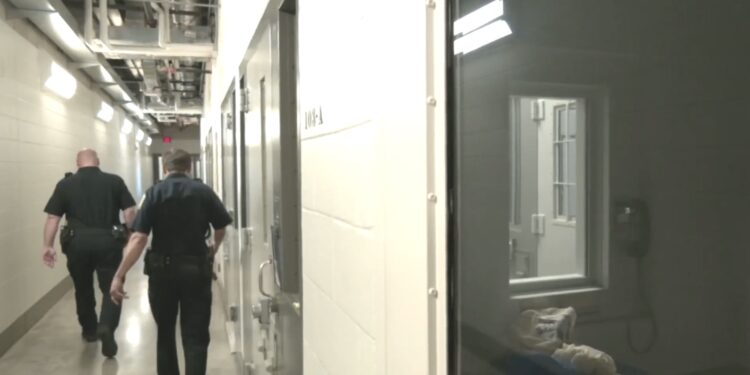LANSING, Mich. (WZMQ) – Michigan corrections officers say dangerous staffing shortages are only getting worse as a set of long-awaited retirement reform bills remains stalled in court.
The legislation, passed by both chambers of the state Legislature last year, was designed to help recruit and retain corrections officers through enhanced retirement benefits. But the bills were never sent to Governor Gretchen Whitmer’s desk and have since become the subject of an ongoing legal battle over the state constitution’s requirements for lawmaking.
Union leaders say the delay is jeopardizing both safety and morale across the state’s prison system, especially in the Upper Peninsula, where prisons remain severely understaffed.
“Quite frankly, the staffing crisis persists,” said Byron Osborne, chapter president for SEIU Local 526M, the union representing Michigan corrections officers. “The dangerous conditions with closed officer positions still persist. We’re in limbo with our legislation, and it’s jeopardizing the safety of 5,000 officers.”
Osborne says mandatory overtime, drug-related incidents inside prisons, and a lack of consequences for inmate assaults have created an environment where officers are increasingly exhausted and unsupported.
Corrections Officer Tim Fleury, who works in the U.P., says staff are missing family milestones due to unpredictable shifts and constant overtime demands.
“We’re constantly having to miss our kids’ sporting events and family time,” Fleury said. “And there’s no help in sight to make me believe that any of that is going to change anytime soon.”
Fleury says the frustration has grown since January, when the court battle over the legislation began. Though the bills passed both the House and Senate, they were not transmitted to the governor because Republican leaders said it was the responsibility of former House leaders.
Now, officers are watching the Court of Appeals for any sign of movement on the case.
“The legislation could help us recruit and retain officers, and we need our elected officials to do something about it,” said Fleury. “They didn’t finish the job, and we need them to finish it.”
Meanwhile, union leaders point to recent academy enrollment numbers as further evidence of the crisis. According to Osborne, just 18 recruits recently entered training to serve six Upper Peninsula prisons, some of which are more than 100 officers short.
Officers say they are calling on the governor, lawmakers, and the courts to resolve the legal dispute and allow the relief bills to be enacted before conditions deteriorate further.
“We’re still here,” Osborne said. “We’re still suffering through these conditions. We need advocacy other than just our own.”










